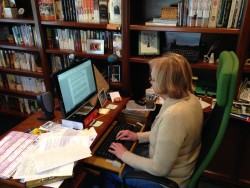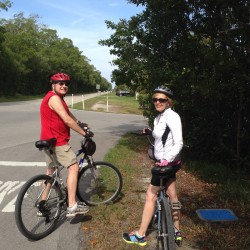Time to Pull Weeds

I know there are people who love to garden. They enjoy nurturing seeds, planting bulbs, and planning perennial beds so that gorgeous flowers flourish in every season. My neighbor is one of them. I walk past her home (in the photos above and below) and sigh with envy at her creativity and diligence.

I am not one of those people. While I do love the end result when my garden looks pristine and welcoming, I don’t enjoy doing the work to make it so. Nevertheless, I was forced to become the family gardener when my husband pulled a muscle in his shoulder. The weeds had no pity on his injury and quickly staged a take-over. Can anyone explain to me why weeds are so hearty and fast-growing while their beautiful, cultivated cousins need pampering? Or why the deer and the rabbits ignore the weeds and munch on my plants as if they’re a salad bar?

As I tackled our overgrown garden last week, it occurred to me that the process has some similarities to the way I write. My first drafts are usually an overgrown tangle of words. My strategy is to conquer the blank page and get something down, no matter how bad, and then go back and fix it later. It takes away some of the anxiety if I don’t stop to critique my work as I write. But the day eventually comes when I have to weed out the overgrown mess. Finding weeds in the garden is usually simple: if the roots seem to go down to China, it’s probably a weed. If it pulls out easily—oops! That was probably something expensive. And when I make my first editing pass on my manuscript, it’s easy to find the weeds, especially if I remind myself of the rules of good writing.
I ended up with a large recycling bin full of weeds by the time I finished pulling them, but the garden still looked overgrown. I needed to go back with my shears and trim away some of the good bushes and plants, too. I hate doing that because I’m always afraid I’m going to cut too much and kill the plant. It’s the same with my manuscript. Even after the weeds of poor grammar have been pulled, my beautiful prose sometimes needs to be trimmed. If I’m in an especially critical mood, I can come dangerously close to chopping away too much and ruining it. But it has to be done.

The photos above and below show the results of my gardening efforts. And while I hated to sacrifice writing time for the task, when I finally sat down to write again I was able to tackle some much-needed editing with renewed fervor.

Now what about weeding my spiritual garden? Jesus said, “I am the vine; you are the branches” and “my Father is the gardener. He cuts off every branch in me that bears no fruit, while every branch that does bear fruit he prunes so that it will be even more fruitful.” That sounds a lot like gardening and editing, doesn’t it? God is looking for fruit like love, joy, and patience—and not weeds like anger, gossip, and bitterness. If I hope to look like my neighbor’s garden in Jesus’ eyes, I think I have some work to do.

- 4983
- 15
- 2



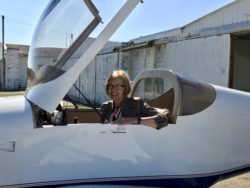


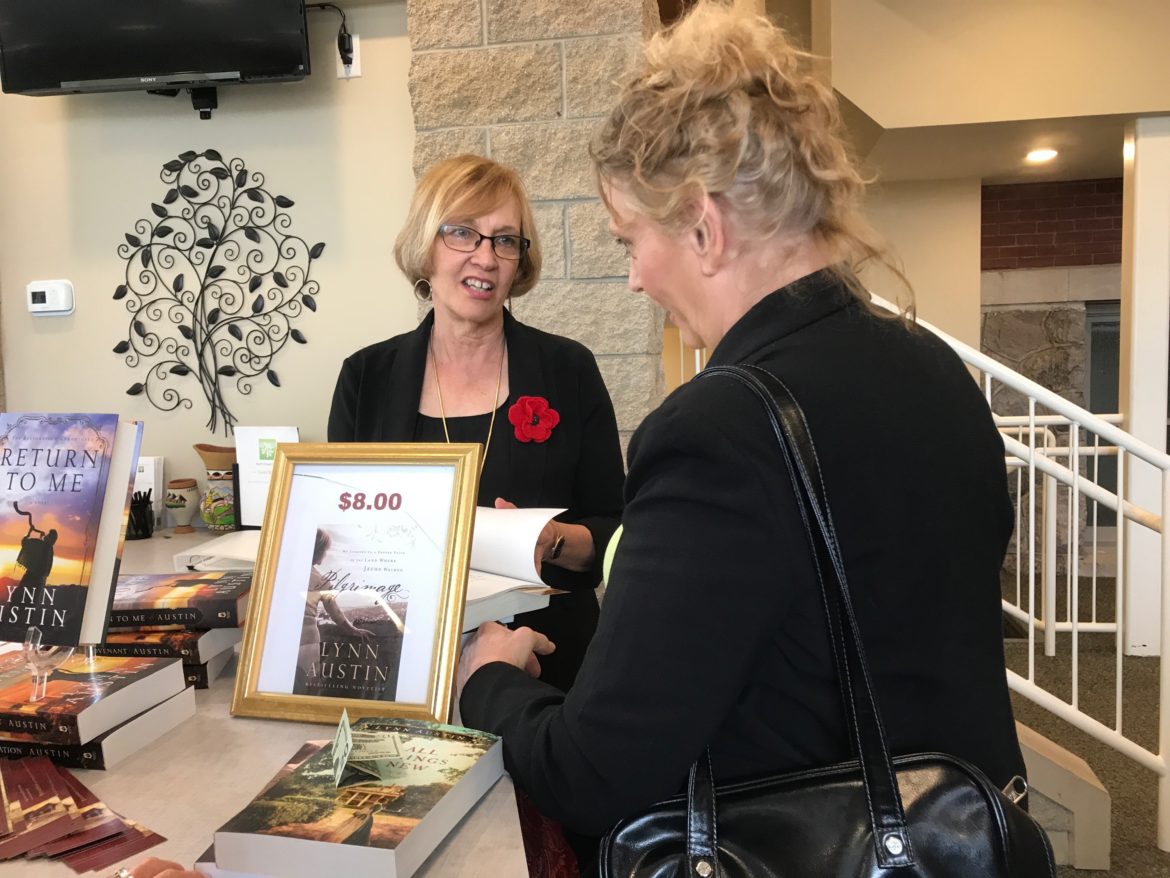









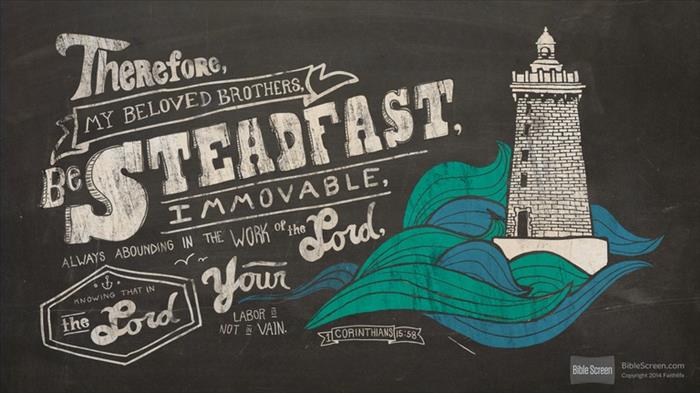

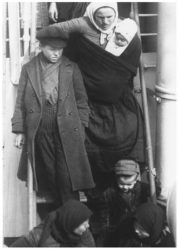 My newest novel, “Waves of Mercy,” (which releases on October 4) tells the true story of the Dutch immigrants who settled the town of Holland, Michigan in 1846. These faithful Christian men and women, who suffered religious persecution in the Netherlands, prayed about what to do and felt God leading them to America, where religious freedom was guaranteed. So they left beautiful, centuries-old cities to move to the virgin wilderness of Michigan and live in crude log cabins. The first summer, malaria struck the community killing many settlers. A year later, a ship called the Phoenix, carrying 225 passengers, including 175 Dutch immigrants, caught fire and sank in Lake Michigan, five miles from their destination. 180 men, women and children died. As the bewildered immigrants buried their loved ones, they must have asked, “Did we really hear from God? How could He allow these tragedies to happen?”
My newest novel, “Waves of Mercy,” (which releases on October 4) tells the true story of the Dutch immigrants who settled the town of Holland, Michigan in 1846. These faithful Christian men and women, who suffered religious persecution in the Netherlands, prayed about what to do and felt God leading them to America, where religious freedom was guaranteed. So they left beautiful, centuries-old cities to move to the virgin wilderness of Michigan and live in crude log cabins. The first summer, malaria struck the community killing many settlers. A year later, a ship called the Phoenix, carrying 225 passengers, including 175 Dutch immigrants, caught fire and sank in Lake Michigan, five miles from their destination. 180 men, women and children died. As the bewildered immigrants buried their loved ones, they must have asked, “Did we really hear from God? How could He allow these tragedies to happen?” I battled similar questions when writing my first novel, “Gods and Kings.” I had an opportunity to go to Israel on an archeological dig to research my book, and it seemed like an answer from God. To earn money for my trip, I babysat for three small children. My husband encouraged me to go and volunteered to take over while I was away. But a few days before I was supposed to leave, our three children came down with the chicken pox. Then we discovered that my husband had never had them, and he became extremely ill. I called the tour organizers to try to cancel or at least postpone my trip only to learn that it wasn’t refundable, nor could I re-book my flight. I would lose all of the money I had worked so hard to save. In spite of his illness, my husband still encouraged me to go—while someone from church called to say, “I think it’s clear that God wants you to stay home and be a wife and mother, not a writer.” Had I really heard from God about being a writer? Why had my family become sick at the worst possible time? I wrestled with God for answers.
I battled similar questions when writing my first novel, “Gods and Kings.” I had an opportunity to go to Israel on an archeological dig to research my book, and it seemed like an answer from God. To earn money for my trip, I babysat for three small children. My husband encouraged me to go and volunteered to take over while I was away. But a few days before I was supposed to leave, our three children came down with the chicken pox. Then we discovered that my husband had never had them, and he became extremely ill. I called the tour organizers to try to cancel or at least postpone my trip only to learn that it wasn’t refundable, nor could I re-book my flight. I would lose all of the money I had worked so hard to save. In spite of his illness, my husband still encouraged me to go—while someone from church called to say, “I think it’s clear that God wants you to stay home and be a wife and mother, not a writer.” Had I really heard from God about being a writer? Why had my family become sick at the worst possible time? I wrestled with God for answers.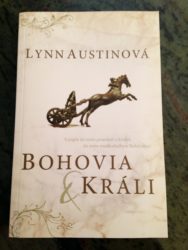

 “Therefore, my dear brothers and sisters, stand firm. Let nothing move you. Always give yourselves fully to the work of the Lord, because you know that your labor in the Lord is not in vain” (1 Corinthians 15:58).
“Therefore, my dear brothers and sisters, stand firm. Let nothing move you. Always give yourselves fully to the work of the Lord, because you know that your labor in the Lord is not in vain” (1 Corinthians 15:58).



 I lived in Canada back then and had just begun to write. But I was too timid to tell anyone except my husband about the novel I was working on during my children’s nap time. One day I felt God challenging me not to keep it a secret anymore. I needed to have the courage and faith to admit to anyone and everyone that I felt called to write Christian fiction. It was a scary step to take. What if people laughed at me? What if I failed?
I lived in Canada back then and had just begun to write. But I was too timid to tell anyone except my husband about the novel I was working on during my children’s nap time. One day I felt God challenging me not to keep it a secret anymore. I needed to have the courage and faith to admit to anyone and everyone that I felt called to write Christian fiction. It was a scary step to take. What if people laughed at me? What if I failed?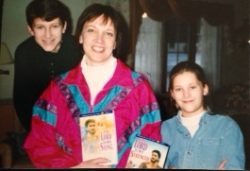
 I understand the hopes and dreams of the writers I’ll be coaching in my class this week. And I can’t wait to encourage them to have faith, and to put their dreams in His hands, because God “is able to do immeasurably more than all we ask or imagine! (Ephesians 3:20).
I understand the hopes and dreams of the writers I’ll be coaching in my class this week. And I can’t wait to encourage them to have faith, and to put their dreams in His hands, because God “is able to do immeasurably more than all we ask or imagine! (Ephesians 3:20).
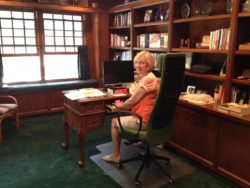 I’m sitting in a comfortable chair in my living room with a cup of tea, surrounded by stacks of library books, my laptop, and some movies I plan to watch. To the untrained eye it appears that I’m loafing, but I’m actually hard at work, searching for new worlds to discover. In other words, I’m researching my next book.
I’m sitting in a comfortable chair in my living room with a cup of tea, surrounded by stacks of library books, my laptop, and some movies I plan to watch. To the untrained eye it appears that I’m loafing, but I’m actually hard at work, searching for new worlds to discover. In other words, I’m researching my next book.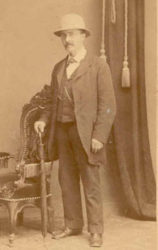
 At some point I will finally close the books and explore the settings for my novel. Again, it’s easy to become overwhelmed by hundreds of precise details such as a period mansion’s architecture and furnishings. As I research my settings, once again I’ll look for stories. For my Civil War novel, A Light to My Path, I toured a beautiful southern mansion, taking copious notes and pictures. The tour guide questioned my interest, and when I told her I was a novelist, she offered an exclusive, post-tour peek at the slave quarters behind the mansion.
At some point I will finally close the books and explore the settings for my novel. Again, it’s easy to become overwhelmed by hundreds of precise details such as a period mansion’s architecture and furnishings. As I research my settings, once again I’ll look for stories. For my Civil War novel, A Light to My Path, I toured a beautiful southern mansion, taking copious notes and pictures. The tour guide questioned my interest, and when I told her I was a novelist, she offered an exclusive, post-tour peek at the slave quarters behind the mansion.
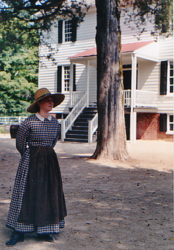 I knew it would take pages to describe the differences between the mansion and those hovels! But then the guide told me a story: The mansion’s owners fled when the city fell to Union soldiers. The newly-liberated slaves moved out of their squalid quarters and into the Big House, using their owners’ dishes, sleeping in their beds, wearing their clothes. Again, a story offered insight into my characters’ point of view and showed me how best to present the settings’ differences.
I knew it would take pages to describe the differences between the mansion and those hovels! But then the guide told me a story: The mansion’s owners fled when the city fell to Union soldiers. The newly-liberated slaves moved out of their squalid quarters and into the Big House, using their owners’ dishes, sleeping in their beds, wearing their clothes. Again, a story offered insight into my characters’ point of view and showed me how best to present the settings’ differences.





